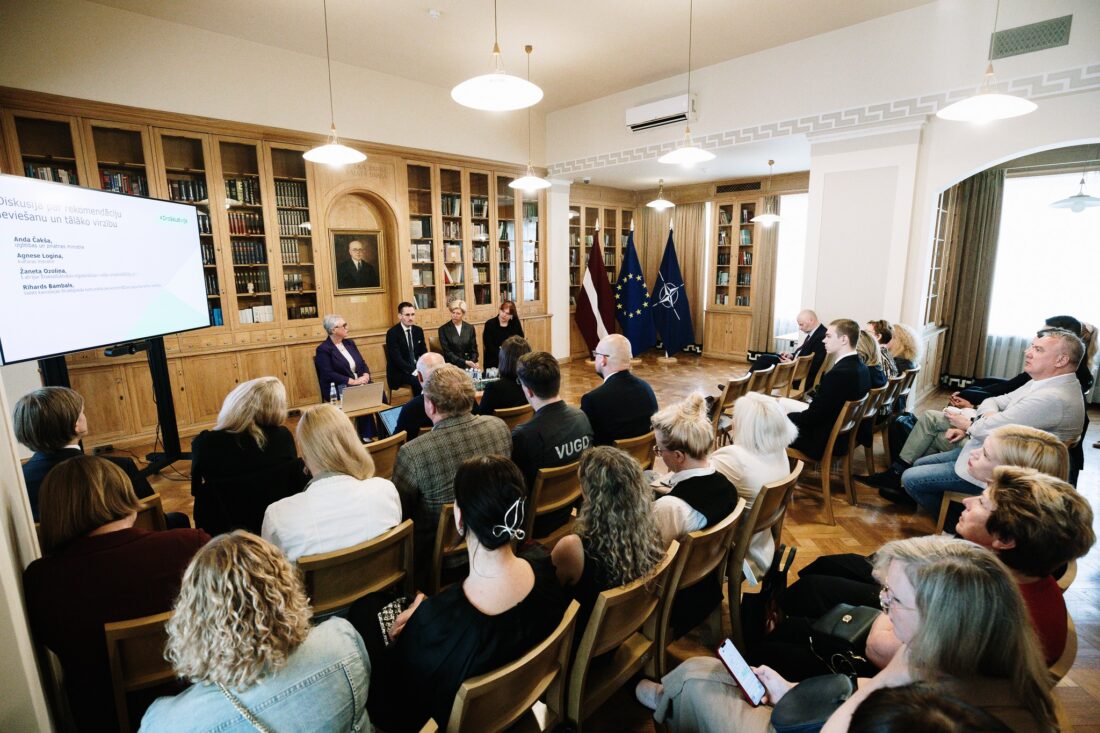#SafeLatvia
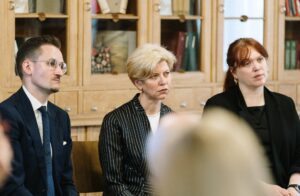 The #SafeLatvia project was implemented by the Latvian Transatlantic Organisation (LATO) Expert Group and the Strategic Communications Coordination Department of the State Chancellery with the aim to study the information resilience of local communities, offer simulation-based training, and raise public awareness of the multidimensional and topical issues of information resilience. In designing and implementing the project, experts took a holistic approach to the concept of information space, which is not only media, but also local governments, communities, informal social media networks, schools and other institutions. The security of the information space depends on the involvement and responsible action of all actors. Thus, they can become an essential condition for guaranteeing security or a weak link that can be exploited for malicious purposes, threatening the foundations of the Latvian state and public security. Based on these considerations, the project looked at the information space as a result of the interaction between content creators, consumers, communication channels and policies and regulations.
The #SafeLatvia project was implemented by the Latvian Transatlantic Organisation (LATO) Expert Group and the Strategic Communications Coordination Department of the State Chancellery with the aim to study the information resilience of local communities, offer simulation-based training, and raise public awareness of the multidimensional and topical issues of information resilience. In designing and implementing the project, experts took a holistic approach to the concept of information space, which is not only media, but also local governments, communities, informal social media networks, schools and other institutions. The security of the information space depends on the involvement and responsible action of all actors. Thus, they can become an essential condition for guaranteeing security or a weak link that can be exploited for malicious purposes, threatening the foundations of the Latvian state and public security. Based on these considerations, the project looked at the information space as a result of the interaction between content creators, consumers, communication channels and policies and regulations.
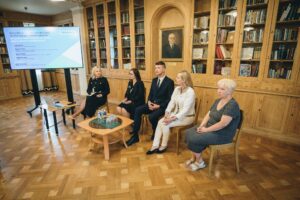 The project was implemented from 1 February to 12 June 2024, covering visits to nine municipalities and the organisation of workshops in Ludza, Preili, Krāslava, Daugavpils, Jelgava, Jēkabpils, Jūrmala, Liepāja and Riga. The project visited these municipalities and thirteen former national minority schools: Riga 34th Secondary School, Ludza 2nd Secondary School, Preili 2nd Secondary School, Krāslava Varavīksnes Secondary School, Jelgava 5th Secondary School and Jelgava 5th Secondary School. Secondary School, Daugavpils Technology Lyceum, Daugavpils State City Secondary School, Liepāja Liedaga Secondary School, Liepāja Dzintars Secondary School, Jēkabpils 2nd Secondary School, Jūrmala Kauguri Secondary School, Riga Arcadia Secondary School and Riga 10th Secondary School. For background information and comparison, the project implementers additionally visited Z. Mauriņa Grobiņas Secondary School and Riga Teika Secondary School.
The project was implemented from 1 February to 12 June 2024, covering visits to nine municipalities and the organisation of workshops in Ludza, Preili, Krāslava, Daugavpils, Jelgava, Jēkabpils, Jūrmala, Liepāja and Riga. The project visited these municipalities and thirteen former national minority schools: Riga 34th Secondary School, Ludza 2nd Secondary School, Preili 2nd Secondary School, Krāslava Varavīksnes Secondary School, Jelgava 5th Secondary School and Jelgava 5th Secondary School. Secondary School, Daugavpils Technology Lyceum, Daugavpils State City Secondary School, Liepāja Liedaga Secondary School, Liepāja Dzintars Secondary School, Jēkabpils 2nd Secondary School, Jūrmala Kauguri Secondary School, Riga Arcadia Secondary School and Riga 10th Secondary School. For background information and comparison, the project implementers additionally visited Z. Mauriņa Grobiņas Secondary School and Riga Teika Secondary School.
The project comprised three main activities:
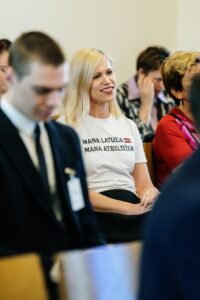 1.Simulation games and lectures on media literacy in schools: in the schools as community centres, the project implementers organised simulation games, lectures and in-depth discussions with teachers and students, focusing on issues of patriotism, political orientation and information resilience.
1.Simulation games and lectures on media literacy in schools: in the schools as community centres, the project implementers organised simulation games, lectures and in-depth discussions with teachers and students, focusing on issues of patriotism, political orientation and information resilience.
2. Workshops in municipalities: in 2021, the #SafeBorder project took place in the Latvian border region. It explored the practices of communities in the eastern regions of Latvia in resisting information attacks, with a particular focus on hostile information operations. During the simulation games in each municipality, the models of cooperation used by decision-makers and the most active community representatives in unconventional crisis situations were analysed, with a particular focus on crisis communication and cooperation with various representatives of local communities, including formal and informal opinion leaders, non-governmental organisations, local media. The #DrošaLatvija project has identified lessons learned and improvements made by local authorities, as well as the crisis communication practices of local authorities in other regions of the country.
3. Information campaign: during the project implementation, a communication campaign was implemented in close cooperation with the Strategic Communication Coordination Department of the State Chancellery, which included sending press releases, regular contacts with media representatives, as well as posting information on LATO’s social media accounts. This raised awareness of information resilience issues among different groups of the public and raised the profile of the project. (Report on the results of the information campaign submitted to the Strategic Communication Coordination Department of the State Chancellery).
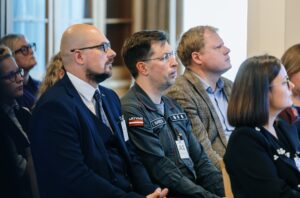 At the end of the project, a public seminar was organised at the State Chancellery with the participation of former Minister of Culture Agnese Logina and Minister of Education and Science Andas Čakša. During the seminar, participants summarised the results of the simulation games, highlighted the success stories of municipalities, demonstrating examples of good practice in strengthening information resilience in different communities in different regions of Latvia, as well as highlighted issues to be addressed in the future. The seminar was attended by participants of the simulation games and other interested participants. Discussions allowed to identify further directions for strengthening the information space, with particular emphasis on the need to continue working with secondary schools in Latvia.
At the end of the project, a public seminar was organised at the State Chancellery with the participation of former Minister of Culture Agnese Logina and Minister of Education and Science Andas Čakša. During the seminar, participants summarised the results of the simulation games, highlighted the success stories of municipalities, demonstrating examples of good practice in strengthening information resilience in different communities in different regions of Latvia, as well as highlighted issues to be addressed in the future. The seminar was attended by participants of the simulation games and other interested participants. Discussions allowed to identify further directions for strengthening the information space, with particular emphasis on the need to continue working with secondary schools in Latvia.



